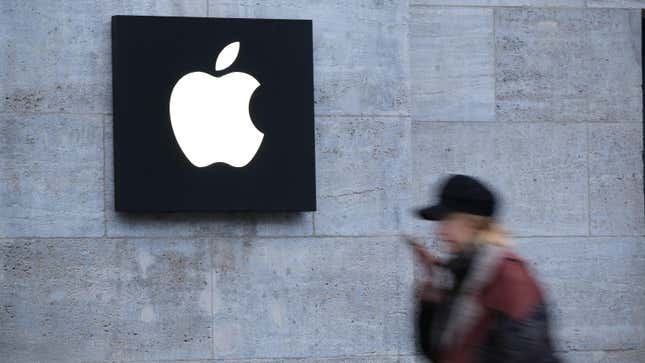
Not two weeks ago, Ashley Gjøvik filed a complaint with the U.S. labor board charging her employer, Apple, with unlawful retaliation. She’d become too vocal, she said, about her experiences with sexism and concerns about safety in the workplace. The company wanted her stopped.
On Thursday, she was fired.
Gjøvik is one of two employees who filed charges against Apple last month with the U.S. National Labor Relations Board, alleging harassment and intimidation at the company. (The agency investigates all charges and prosecutes those it can substantiate.) The complaints follow a rare burst of employee activism at Apple, manifesting last month under the hashtag #AppleToo — an overt reference to 2017's Me Too movement, which toppled powerful men long impervious to claims of misconduct.
The employees, who said they were out to expose patterns of discrimination and abuse within Apple, said it had flown under the radar for too long.
In a letter explaining Gjøvik’s firing, Apple accuses the (former) senior engineering program manager of disclosing “confidential product-related information,” adding that she’d also “failed to cooperate” during the “investigatory process.”
Gjøvik, who has accused Apple publicly of ignoring harassment by a manager, and of subjecting her to hostile work conditions, said by phone that she knew no specifics about the “confidential information” she was accused of disclosing.
It was Apple, she said, that had disregarded her attempts to cooperate.
Company emails shared with Gizmodo show that Apple had reached out Gjøvik by email Thursday afternoon asking to “connect” with her “as soon as possible today.” “We’re looking into a sensitive Intellectual Property matter that we would like to speak with you about,” the first email she received read.
“Happy to help!” Gjøvik replied minutes later, with one caveat: She wanted to stick with email, “so we keep everything written please.”
Nearly an hour passed. When Apple did respond, it seemed to ignore Gjøvik’s request entirely—and her enthusiastic agreement to cooperate. “Since you have chosen not to participate in the discussion, we will move forward with the information that we have, and given the seriousness of these allegations, we are suspending your access to Apple systems,” the reply said.
Gjøvik reiterated, “As mentioned, I am definitely willing to participate in your investigation,” adding: “I offered to help via email to ensure we have a documented [record] of our conversations considering everything that’s currently going on with my investigation and my complaints to the government.”
Added Gjøvik: “I’d really like the opportunity to remedy any actual issues. Please let me know what the issues are so I can make a good faith attempt at that.” If the company continued to speak only vaguely of accusations against her, she wrote, she’d consider it further proof of retaliation.
Apple’s email responses then ceased. Hours later she was out of a job.
The termination letter, shared with Gizmodo, illuminated nothing. It repeated the same ambiguous charge and said she’d “failed to cooperate and to provide accurate and complete information during the Apple investigatory process.”
An inquiry to Apple got no response. In a statement to the Verge, however, the company said it would not address any “specific employee matters.”
Speaking by phone, Gjøvik’s voice cracked up several times. “Apple has been my favorite company since I was a little girl. It was [my] dream to work for them,” she said. “Even though I had a terrible experience, I feel like I did really good work. It feels like a betrayal that they’ve treated me this way.”
Gjøvik said, still, she was not surprised. Since she began raising concerns about workplace safety in March—her office was built on a superfund site that requires special permits due to prior contamination from hazardous waste—she’d been bracing for the blowback.
“I wasn’t going to be quiet or slink away. I was going to stand up for myself and my fellow employees,” Gjøvik said. “I was going to expose the systemic problems I identified. I was going to organize with employees. I was going to demand internal and public accountability of the biggest company in the world.”
Her only wish, she said, was to make a “dent in the universe” of Apple’s employment and labor practices.